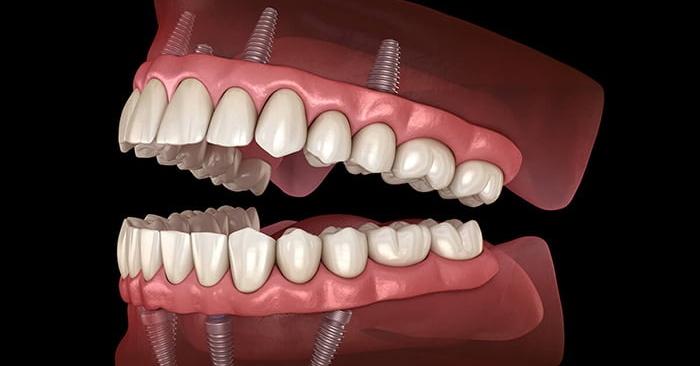Dental implants are an excellent solution for those who have lost one or more teeth and wish to regain their oral function and appearance. However, many people are discouraged by the cost of dental implants. Let’s discuss how dental implant costs are determined and why they may vary.
What Factors Impact the Cost of Dental Implants?
The Location of the Dental Implant
The location of the implant in your mouth can impact the overall cost because different areas of the mouth require different levels of expertise, materials and time to complete the procedure. For example, a front tooth implant will generally cost more than a molar implant because it requires more precision to ensure proper placement. It’s important to discuss the location of your implant with your dentist so they can give you an accurate estimate of the associated costs.
The Amount of Dental Work Required Before Implant Placement
Before scheduling the implant procedure, certain dental work must be done to prepare for the implant. This work typically includes a comprehensive dental exam to evaluate the health of the surrounding teeth and gums, as well as X-rays to assess the jawbone’s condition. If there is any damage or decay to the adjacent teeth, it may be necessary to perform fillings, root canals or extractions before implant surgery. Additionally, patients may need to undergo a bone grafting procedure if their jawbone lacks the necessary bone density to support the implant. These preliminary steps ensure a successful implant procedure and a healthy, functional smile.
The Type of Implant Preferred
There are two popular types of implants: endosteal and subperiosteal. Endosteal implants are surgically placed in the jawbone, while subperiosteal implants are placed on top of the jawbone and under the gum line. Endosteal implants are more common but are also more expensive due to the surgical requirements.
If you are missing most or all of your teeth, you may be a candidate for full fixed arch implants. These are a type of implant-supported denture that replaces all of your teeth at once. Full arch implants can save you money in the long run by providing superior functionality and durability. Traditional dentures, while cheaper initially, require frequent replacements as they deteriorate over time.
However, the cost of full fixed arches may seem daunting at first. Full arch implants can cost anywhere from $20,000 to $45,000 per arch. However, it is important to remember the long-term benefits of implant-supported dentures. In addition to their durability and superior function, implant-supported dentures prevent bone loss that can occur with traditional dentures.
Why Dental Implants Are Worth the Cost
Dental implants are more than just a cosmetic upgrade to your smile; they provide a long-term solution for missing teeth. While they may come with a higher price tag than other tooth replacement options, their durability and longevity make them worth the investment. Dental implants provide a secure base for your new tooth and help maintain the shape of your jaw, preventing future tooth loss. In the grand scheme of things, the upfront cost is a small price to pay for a confident smile and improved oral health. With proper care, your dental implants can last a lifetime. Speak to your dentist about your options for dental implants and see if they are the right choice.

